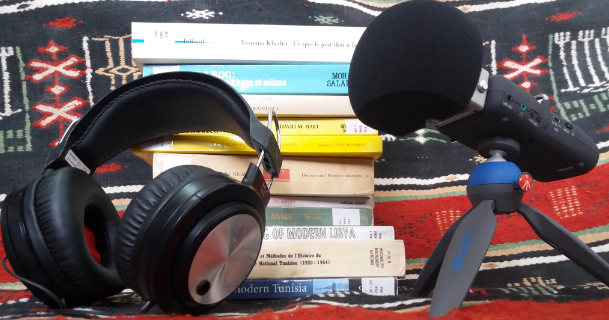
65K
Downloads
226
Episodes
Maghrib in Past & Present | Podcasts is a forum in which artists, writers, and scholars from North Africa, the United States, and beyond can present their ongoing and innovative research on and in the Maghrib. The podcasts are based on lectures, live performances, book talks, and interviews across the region. Aiming to project the scientific and cultural dynamism of research in and on North Africa into the classroom, we too hope to reach a wider audience across the globe.
Maghrib in Past & Present | Podcasts is a forum in which artists, writers, and scholars from North Africa, the United States, and beyond can present their ongoing and innovative research on and in the Maghrib. The podcasts are based on lectures, live performances, book talks, and interviews across the region. Aiming to project the scientific and cultural dynamism of research in and on North Africa into the classroom, we too hope to reach a wider audience across the globe.
Episodes
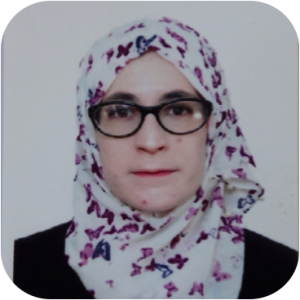
Thursday Jul 01, 2021
Thursday Jul 01, 2021
Episode 127: Digitalisation des manuscrits arabes. Cas d’études : Les manuscrits traitant de la religion musulmane
Constituant une ressource appréciable pour les sciences humaines et sociales, les manuscrits berbères écrits en caractères arabes sont répartis un peu partout dans les pays du Maghreb. Un bon nombre de ces manuscrits se trouve dans des bibliothèques publiques mais beaucoup d’autres appartiennent à des particuliers.
La journée d’étude organisée par le Centre d'Études Maghrébines en Algérie (CEMA) intitulée: Reflexions autour des manuscrits maghrébins, s’adresse aux chercheurs, enseignants-chercheurs et doctorants qui s’intéressent aux manuscrits. Les approches mobilisées dans les différentes communications programmées dans le cadre de cette journée sont riches et variées par les objets qu’elles traitent. Elles se penchent chacune à leur manière sur l’identification et la conservation des fonds documentaires, la paléographie, la codicologie, l’étude du contenu qui font l’objet de plusieurs branches de savoir telles les humanités numériques qui peuvent offrir des perspectives insoupçonnées.
Dans ce podcast Imène Ait Abderrahim, doctorante en informatique à l'Université d'Oran 1, présente son travail qui s'inscrit dans le domaine de la digitalisation des manuscrits, où elle explique les étapes et les règles importantes à suivre dans le processus de numérisation des manuscrits, et nous dit quels sont les manuscrits numérisés parmi ceux traitant de la religion musulmane. En effet, les manuscrits sont une principale source de recherche et malgré tous les efforts fournis, il est impossible de les conserver sous leur forme physique, notamment les plus anciens, en raison de leur détérioration rapide après un certain temps de stockage. D’après Imène Ait Abderrahim la numérisation apporte des solutions à ce genre de problèmes en améliorant la méthode de conservation et de préservation des documents et en facilitant leur accessibilité grâce à un espace de stockage numérique.
Cet episode s'inscrit dans le cadre du cycle de conférences « Langues et sociétés au Maghreb ». Il a été enregistré à l’occasion de la journée d’études « Reflexions autour des manuscrits maghrébins », qui a eu lieu le 12 février 2020 au Centre d'Études Maghrébines en Algérie (CEMA). Pr. Ouahmi Ould-Braham, Professeur des Universités, fondateur de la revue académique Études et Documents Berbères, domiciliée à la Maison des Sciences de l'Homme - Paris Nord a modéré le débat.
Nous remercions infiniment Mohammed Boukhoudmi d'avoir interprété un morceau musical de Elli Mektoub Mektoub, pour les besoins de ce podcast.

Thursday Jun 24, 2021
Al-Harf as a site of Negotiating Modernism and Unity
Thursday Jun 24, 2021
Thursday Jun 24, 2021
Episode 126: Al-Harf as a site of Negotiating Modernism and Unity
The articulation of the Arabic letter in modern art in the Arab world has been a popular topic of discussion. The letter served 20th century artists on multiple levels and allowed for contradictory arguments. The letter became part of a more complex discourse of signs that drew on a collective and historical memory of difference, rupture and continuity. It disrupted and subverted the rhetoric of regional separation and promoted unity; its prominence in this imaginative and constructed discourse alluded to an emphasis on cultural overlaps, intersections, connections, and continuity between the Mashriq and the Maghreb. Equally, it gave artists comfort and confidence that came from the immediate perception of a marked cultural (and at times political) identity for the work. Manipulating the Arabic letter in art, thus, served as a mediator between national identity, heritage and modern art.
Nada Shabout is a Regent Professor of Art History and the Coordinator of the Contemporary Arab and Muslim Cultural Studies Initiative (CAMCSI) at the University of North Texas. She is the founding president of the Association for Modern and Contemporary Art from the Arab World, Iran and Turkey (AMCA). She is the author of Modern Arab Art: Formation of Arab Aesthetics, University of Florida Press, 2007; co-editor with S. Mikdadi, New Vision: Arab Art in the 21st Century, Thames & Hudson, 2009; and co-editor with S. Rogers and A. Lenssen, Modern Art in the Arab World: Primary Documents, Museum of Modern Art, New York, 2018. She is also founding director of Modern Art Iraq Archive. Notable among exhibitions she has curated: Sajjil: A Century of Modern Art, 2010; traveling exhibition, Dafatir: Contemporary Iraqi Book Art, 2005-2009; and co-curator, Modernism and Iraq, 2009. In 2017, she received The Crow Collection of Asian Art’s Achievement in Asian Arts and Culture Award, and in 2018, the UNT Presidential Excellency Award. Shabout was the Project Advisor for the Saudi National Pavilion, Venice Biennale 2019. Shabout is on the Board of Directors, Visual Art Commission, Ministry of Culture, Saudi Arabia (2020-2023), the Board of The Academic Research Institute in Iraq (TARII), and the College Art Association (CAA) Board of Directors (2020-2024). Her current projects include, leading an AMCA team, as part of the Getty Foundation Connecting Art Histories initiative, in support of “Mapping Art Histories from the Arab World, Iran and Turkey,” coediting with Sarah Rogers and Suheyla Takesh, Modern Art in the Arabian Peninsula, and working on a new book project, Demarcating Modernism in Iraqi Art: The Dialectics of the Decorative, 1951-1979, both under contract with the American University in Cairo Press.
This episode is part of the Modern Art in the Maghrib series, and was recorded on April 9, 2021, via zoom. This is part of a larger Council of American Overseas Research Centers program organized by the Centre d'Études Maghrébines à Tunis (CEMAT) and financed by the Andrew Mellon Foundation that seeks to collaborate with local institutions for a greater awareness of art historical research in north Africa.

Thursday Jun 17, 2021
Thursday Jun 17, 2021
Episode 125: Curating Modern Art from North Africa and West Asia: Methodological Conundrums and Contentions of Language
In this podcast, Suheyla Takesh addresses the methodological challenges in studying modernism in the non-West and the question of language and terminology for discussing developments that conceptually preside outside established art-historical frameworks. Focusing on two exhibitions as case studies: Taking Shape: Abstraction from the Arab World, 1950s–1980s (Grey Art Gallery, 2020) and Lasting Impressions: Baya Mahieddine (Sharjah Art Museum, 2021), Takesh considers curatorial strategies, pitfalls, and questions in studying the multiple and manifold histories of global modernism in the arts.
Suheyla Takesh is Curator at the Barjeel Art Foundation, Sharjah, United Arab Emirates, where she works on research, curatorial development of exhibitions, and oversees the production of publications. She is the co-curator of Taking Shape: Abstraction from the Arab World, 1950s–1980s at the Grey Art Gallery, New York University, and co-editor of the eponymous volume of essays (Hirmer Publishers, 2020). Her work has been published in peer-reviewed journals, including the Rutgers Art Review (Department of Art History, Rutgers University) and Thresholds (Department of Architecture, MIT).
This episode is part of the Modern Art in the Maghrib series, and was recorded on May 6, 2021, via zoom. This is part of a larger Council of American Overseas Research Centers program organized by the Centre d'Études Maghrébines à Tunis (CEMAT) and financed by the Andrew Mellon Foundation that seeks to collaborate with local institutions for a greater awareness of art historical research in north Africa.
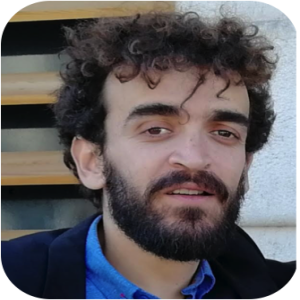
Thursday Jun 03, 2021
Thursday Jun 03, 2021
Episode 124: Berrechid 81. Retour sur une expérience collective à la lisière de l'art et de la psychiatrie
Dans ce podcast, Abdeslam Ziou Ziou revient sur la naissance et la disparition d’une expérience originale consistant à adopter une approche humaine de la psychiatrie en mobilisant d’autres acteurs dans le processus des soins mentaux.
Berrechid 1981. Au début de l'été chaud de 1981, une activité inhabituelle eut lieu à l'Hôpital psychiatrique de Berrechid. Peintres, écrivains, réalisateurs et intellectuels, dont Mohamed Melehi et Mohamed Chebâa, sont invités à partager le quotidien des patients pendant une semaine. Cette expérience ouvrira l'hôpital, ce « sanctuaire de la folie » comme on l'appelle au Maroc, à son environnement immédiat. Des peintures murales y sont réalisées, des concerts et des spectacles ont lieu dans son enceinte, la presse y est invitée et des débats y sont organisés. Les habitants de Berrechid auront l’opportunité de visiter l'hôpital. Au-delà de son aspect anecdotique, cet événement s'inscrit dans une démarche globale initiée en 1975 par Dr. Abdellah Ziou Ziou, consistant à jumeler un intérêt pour les pratiques populaires de traitement des maladies mentales au Maroc et l'approche anti-psychiatrique ayant émergé à Trieste en Italie.
Abdeslam Ziou Ziou est diplômé en anthropologie sociale de l'École des Hautes Études en Sciences Sociales de Paris. Il est chercheur indépendant et consultant dans le domaine des arts et de la culture au Maroc, et a été coordinateur de projet et de recherche à l’Atelier de l’Observatoire de Casablanca. Il a été lauréat du Projet de recherche transdisciplinaire « Houdoud » dirigé par la Chaire de Fatéma Mernissi (Université Mohammed V et HEM) – UNESCO. Sa recherche est soutenue par le projet School of Casablanca, initié par le KW Institute for Contemporary Art et Sharjah Art Foundation, en collaboration avec le Goethe-Institut Marokko, ThinkArt et Zamân Books & Curating. Depuis 2020, il est boursier du CAORC / Andrew W. Mellon en histoire de l'art moderne au CEMAT.
Cet épisode s'inscrit dans le cadre du cycle des conférences “Santé et humanités au Maghreb” de l'American Institute for Maghrib Studies (AIMS), organisé par le Centre d'Études Maghrébines en Algérie (CEMA) et le Centre d'Études Maghrébines à Tunis (CEMAT) en étroite collaboration avec Tangier American Legation Institute for Moroccan Studies (TALIM). Ce podcast a été enregistré via Zoom le 25 mars 2021 entre Oran et Tunis. Dr. Samia Henni, historienne et théoricienne de l'architecture au département d’architecture de l’université de Cornell aux États-Unis, a modéré le débat.

Thursday May 27, 2021
Thursday May 27, 2021
Episode 123: Rencontre avec Denis Martinez, artiste plasticien et pédagogue. Un parcours en partage
Dans ce podcast, l'artiste plasticien et pédagogue, Denis Martinez, revient sur sa trajectoire dans le domaine de l’art et partage avec nous les grands moments de sa longue carrière artistique à travers la présentation du film documentaire intitulé « Denis Martinez, un homme en libertés », que le cinéaste Claude Hirsh lui a consacré en 2013.
Né le 30 novembre 1941 à Mars-el-Hadjadj, prés d'Oran en Algérie, Denis Martinez figure parmi les plus importants artistes peintres et poètes algériens contemporains. Enseignant à l'Ecole Supérieure des Beaux Arts d'Alger de 1963 à 1993. En 1967 il est fondateur, avec Choukri Mesli, du groupe Aouchem (tatouage). Exilé à Marseille en 1994, il enseigne à l'Ecole Supérieure d'Art d'Aix-en-Provence jusqu'en 2006.
Denis Martinez a été l'initiateur de plusieurs manifestations artistiques en France, dont ''Culture Algérienne Cultures Vivantes'' en 1995 à la Friche de la Belle de Mai à Marseille, ''Expressions algériennes contemporaines'' en 2000 à Aix-en-Provence et ''Jonctions'' Djazair en 2003 à la Friche de la Belle de Mai. Depuis 2000, il réoccupe régulièrement son atelier dans sa demeure familiale à Blida. En juillet 2004, il participe avec Hassan Metref et Salah Silem, à la création du festival nomade ''Raconte Arts'' en Kabylie. C'est à partir de cette date qu'il se lance dans une aventure qui l'amène à intervenir régulièrement avec des créations éphémères in situ dans les Tajmaats de différents villages de Kabylie. L'artiste a des œuvres au Musée Nationale des Beaux-arts d'Alger et dans des collections particulières et publiques en Algérie et en France. Il est l'auteur de plaquettes de poésie, de portfolio, et d'anthologies illustrées.
Son parcours a inspiré plus d'un, l'écrivain Nourredine Saadi a publié Denis Martinez, peintre algérien aux éditions Barzakh-Le bec en l'air. Le cinéaste Jean-Pierre Lledo lui a consacré trois courts métrages (1985,1996). Dominique Devigne, sa compagne, a réalisé plusieurs courts métrages vidéo sur ses interventions en Algérie de 1990 à nos jours. En 2013, le cinéaste Claude Hirsh lui consacre un film intitulé : « Denis Martinez, un homme en libertés ».
Cet épisode a été enregistré le 13 mai 2018 au Centre d'Études Maghrébines en Algérie (CEMA) et s'inscrit dans le cadre du cycle des conférences « Arts et lettres au Maghreb ».
Dr. Mohamed Bensalah, Enseignant-chercheur à l’Université d’Oran 2 et cinéaste a modéré le débat.
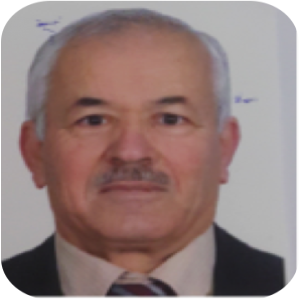
Thursday May 20, 2021
Thursday May 20, 2021
Episode 122: Sur les manuscrits ibâdites des anciens “Siyar” et en particulier l’ouvrage de Shammâkhi (9e / 15e siècle)
Constituant une ressource appréciable pour les sciences humaines et sociales, les manuscrits berbères écrits en caractères arabes sont répartis un peu partout dans les pays du Maghreb. Un bon nombre de ces manuscrits se trouve dans des bibliothèques publiques mais beaucoup d’autres appartiennent à des particuliers.
La journée d’étude organisée par le Centre d'Études Maghrébines en Algérie (CEMA) intitulée: Reflexions autour des manuscrits maghrébins, s’adresse aux chercheurs, enseignants-chercheurs et doctorants qui s’intéressent aux manuscrits. Les approches mobilisées dans les différentes communications programmées dans le cadre de cette journée sont riches et variées par les objets qu’elles traitent. Elles se penchent chacune à leur manière sur l’identification et la conservation des fonds documentaires, la paléographie, la codicologie, l’étude du contenu qui font l’objet de plusieurs branches de savoir telles les humanités numériques qui peuvent offrir des perspectives insoupçonnées.
Dans ce Podcast, Mohamed Hassen, Professeur des Universités en Histoire et Archéologie Médiévale et membre de l’Académie tunisienne des Sciences, des Lettres et des Arts Beït al-Hikma, présente une communication portant le titre : « Sur les manuscrits ibadites des anciens ‘siyar’ et en particulier l’ouvrage de Shammakhi (9e/15e siècle) ». Le texte du Pr. Mohamed Hassen, absent à la journée d’étude suite à des perturbations du trafic aérien, a été lu par Pr. Ouahmi Ould-Braham, Professeur des Universités, fondateur de la revue académique Études et Documents Berbères , domiciliée à la Maison des Sciences de l’Homme - Paris Nord.
Les ouvrages de syar sont à la fois des chroniques et des recueils de biographies de la notabilité religieuse, aussi bien au Mashriq qu’au Maghrib. Ils rendent compte d’une situation culturelle complexe, héritée de l’Antiquité et transformée tout le long du Moyen Âge. Ils reflètent une période qui a connu la mise en place, dans les montagnes, les oasis et les tribus du Sud de l’Ifrîqiya, d’un système socio-économique et culturel, caractérisé par une acculturation défensive, opérée selon le prisme de l’ibadisme. Tenant compte du grand intérêt historique de ces ouvrages, une édition critique serait une tâche impérieuse pour la majorité d’entre eux.
Pr. Mohamed Hassen a publié plusieurs articles et ouvrages en arabe, français et anglais sur l’Histoire et l’archéologie du Maghreb et de l’Andalus en général et de l’Ifrîqiya en particulier.
Cet épisode s'inscrit dans le cadre du cycle de conférences « Langues et sociétés au Maghreb ». Il a été enregistré à l’occasion de la journée d’études « Réflexions autour des manuscrits maghrébins », qui a eu lieu le 12 février 2020 au Centre d'Études Maghrébines en Algérie (CEMA). Dr. Karim Ouaras, Maître de conférences à l’Université d’Oran 2 et Directeur adjoint du CEMA a modéré le débat.
Nous remercions Dr. Jonathan Glasser, anthropologue culturel au College of William & Mary, pour son istikhbar in sika à l'alto pour l'introduction et la conclusion de ce podcast.
Réalisation et montage: Hayet Lansari, Bibliothécaire / Chargée de la diffusion des activités scientifiques (CEMA).
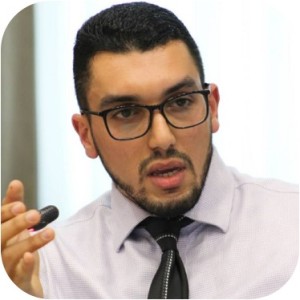
Thursday May 06, 2021
Libya: Continuities and Discontinuities of Political Order After 2011
Thursday May 06, 2021
Thursday May 06, 2021
Jacob Mundy, Associate Professor of Peace and Conflict Studies at Colgate University, conducted this interview on March 11, 2021. This podcast is part of the "Supporting Critical Research and Strengthening Scholarly Capacity in Algeria, Libya, and Tunisia" project organized by the Centre d'Études Maghrébines à Tunis (CEMAT) and the Centre d'Études Maghrébines en Algérie (CEMA), and funded by the Carnegie Corporation of New York. Prof. Mundy heads the contemporary Libya studies research unit, of which Badi is a member.
Posted by: Hayet Lansari, Librarian, Outreach Coordinator, Content Curator (CEMA).

Thursday Apr 29, 2021
Thursday Apr 29, 2021
Épisode 120: La dimension berbère dans les manuscrits arabes du Maghreb. Essai de lecture de quelques documents
Constituant une ressource appréciable pour les sciences humaines et sociales, les manuscrits berbères écrits en caractères arabes sont répartis un peu partout dans les pays du Maghreb. Un bon nombre de ces manuscrits se trouve dans des bibliothèques publiques mais beaucoup d’autres appartiennent à des particuliers.
La journée d’étude organisée par le Centre d'Études Maghrébines en Algérie (CEMA) intitulée: Réflexions autour des manuscrits maghrébins, s’adresse aux chercheurs, enseignants-chercheurs et doctorants qui s’intéressent aux manuscrits. Les approches mobilisées dans les différentes communications programmées dans le cadre de cette journée sont riches et variées par les objets qu’elles traitent. Elles se penchent chacune à leur manière sur l’identification et la conservation des fonds documentaires, la paléographie, la codicologie, l’étude du contenu qui font l’objet de plusieurs branches de savoir telles les humanités numériques qui peuvent offrir des perspectives insoupçonnées.
Dans ce podcast Dr. Ramdane Boukherrouf présente son travail qui s’inscrit dans le domaine de la linguistique du corpus (Firth 1957) qui considère qu’un énoncé ne peut avoir de sens en dehors de son contexte historique et culturel de production. Il s’appuie également sur les travaux de Sinclair (1991) qui, s’inscrivant dans le prolongement et le développement de la première vision, considère que toute analyse linguistique doit se baser sur un ensemble de grands corpus. Dr. Ramdane Boukherrouf a choisi de travailler sur des parlers, autres que le kabyle, à partir d’un dépouillement profond des indications que fournissent les manuscrits médiévaux.
Le manuscrit dont il question ici a été recueilli par Motylinski auprès de Brahim Ouslimane Chemakhi, Taleb d’Ifren au Mzab. Il s’agit d’un document de 54 pages qui nous renseigne en profondeur sur des données géographique, historique et linguistique du Djebel Nefousa. L’intérêt de ce manuscrit réside dans le fait qu’il constitue non seulement un témoignage historique sur la langue berbère, mais un document densément fourni en termes d’indications géographique, sociologique, linguistiques, historique et autres sur le Djebel Nefoussa.
Dr. Ramdane Boukherrouf est enseignant chercheur (Maître de conférences classe A) à l’Université Mouloud Mammeri de Tizi-Ouzou et Directeur du Laboratoire d’Aménagement et d’Enseignement de la langue Amazighe. Il a obtenue le 23 avril 2017 une Habilitation à Diriger des Recherches Universitaires en Langue et Culture Amazighes. Il est également titulaire d'un Doctorat (Cotutelle UMMTO, Algérie & UNIL, Lausanne) en Langue et Culture Amazighes, Option : Linguistique, obtenu le 08 septembre 2015 aux Universités Mouloud Mammeri et Lausanne.
Cet épisode s'inscrit dans le cadre du cycle de conférences « Langues et sociétés au Maghreb ». Il a été enregistré à l’occasion de la journée d’études « Réflexions autour des manuscrits maghrébins », qui a eu lieu le 12 février 2020 Centre d'Études Maghrébines en Algérie (CEMA). Dr. Karim Ouaras, Maître de conférences à l’Université d’Oran 2 et Directeur adjoint du CEMA a modéré le débat.
Nous remercions notre ami Ignacio Villalón, étudiant en master à l'EHESS, pour sa prestation à la guitare du titre A vava Inouva de Idir pour l'introduction et la conclusion de ce podcast.
Réalisation et montage: Hayet Lansari, Bibliothécaire / Chargée de la diffusion des activités scientifiques (CEMA).

Thursday Apr 22, 2021
الحدود المجتمعية: قراءة في أشكال التمزق ومقترح في سبل الاندماج
Thursday Apr 22, 2021
Thursday Apr 22, 2021
Episode 119:الحدود المجتمعية: قراءة في أشكال التمزق ومقترح في سبل الاندماج
يتتبع ماهر الزغلامي في هذه الحوارية المعنونة بـ"الحدود المجتمعية: قراءة في أشكال التمزّق و مقترح في سبل الاندماج"، أشكال الانقسام الاجتماعي التي تعيد إنتاج نفسها باستمرار ضمن نظام تسلسلي للشروخ المجتمعية. وهو ما يحاول قراءة تمظهراته في المجالين الثقافي والديني، حيث يماثل بين العجز عن إنتاج "الأغنية التونسية" (معرفة بالألف واللاّم) والفشل في إنتاج "سردية للإسلام التونسي"، اعتباراً للخلل الوظيفي الذي اعترى عملية التحديث الفوقي منذ لحظة الاستقلال الّتي رافقتها مركزة شاملة لكل المجالات
في مستوىً ثانٍ، يتطرّق إلى السبل الاندماجية المتمحورة في ضرورة الموازنة بين اكساب الدولة صفة الوطنية عن جدارة من طريق فهم ثقافيّ للامركزيّة، وبين إعادة الفاعلية للمجتمع الأهلي وأشكاله التضامنية، ضمن تصوّر لمفهوم الرعاية الإيجابية، المتجاوز لقصور النظرة القانونية الصرفة
ماهر الزغلامي هو باحث في علم الإجتماع يتركز جهده البحثي على المزاوجة بين التحليل السوسيولوجي للظواهر الاجتماعية من ناحية أولى، والتنبؤ الاستشرافي المبني على تقنية السناريوهات من ناحية ثانية، والرسم الستراتيجي للسياسات العمومية عبر المفاضلة بين السيناريوهات المتوقعة من ناحية ثالثة. وهو المنهج الذي سعى إلى تطبيقه في سياق الاشتغال على مبحث السياسات الدينية ونزع الراديكالية في تونس
تم تسجيل هذه الحلقة من المحاضرات عن "المجتمع والسياسة في شمال إفريقيا " بتاريخ 5 مارس 2021 وذلك ضمن برنامج مجلس مراكز البحث الأمريكية بما وراء البحار حول " تعزيز البحوث والدراسات النقدية بالجزائر وليبيا وتونس" التي ينظمها بالتعاون كل من مركز الدراسات المغاربية بتونس ومركز الدراسات المغاربية بالجزائر بدعم من مؤسسة كارنيغي بنيويورك. أدار الحوار كريم المرزوقي وهو باحث في العلوم القانونية.
ماهر الزغلامي وكريم المرزوقي عضوان باحثان بوحدة البحث "الحدود والمناطق الهامشية بشمال إفريقيا" التابع لبرنامج البحث حول "تعزيز البحوث والدراسات النقدية بالجزائر وليبيا وتونس" لمجلس مراكز البحث الأمريكية بما وراء البحار
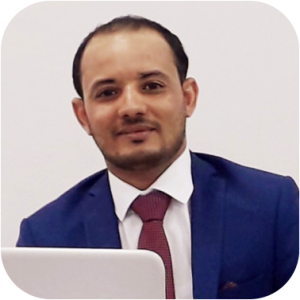
Thursday Apr 15, 2021
Thursday Apr 15, 2021
تم تسجيل هذه الحلقة من المحاضرات عن "الأفضية والأقاليم بشمال إفريقيا" بتاريخ 6 جانفي 2021 وذلك ضمن برنامج مجلس مراكز البحث الأمريكية بما وراء البحارعن "البحوث والدراسات النقدية بالجزائر وليبيا وتونس" التي ينظمها بالتعاون كل من مركز الدراسات المغاربية بتونس ومركز الدراسات المغاربية بالجزائر بدعم من مؤسسة كارنيغي بنيويورك
(CAORC, CEMAT, CEMA, CARNEGIE CORPORATION)
قام بإدارة الحوار د. طارق غضباني، أستاذ محاضر في قسم الجغرافيا والتنظيم المدني بجامعة وهران 2، وهو مدير مخبرأبحاث الفضاء الجغرافي والتخطيط العمراني (EGEAT)، وباحث في مركز الأبحاث الأنثروبولوجية والعلوم الاجتماعية (CRASC)، وعضو في المجلس العلمي التابع للمركز الأمريكي للدراسات المغاربية (AIMS)، ورئيس وحدة البحث حول الشبكات الاقتصادية والسياسية والاجتماعية عبر الإقليمية التابع لبرنامج البحث حول "تعزيز البحوث والدراسات النقدية بالجزائر وليبيا وتونس" لمجلس مراكز البحث الأمريكية بما وراء البحار (CAORC).
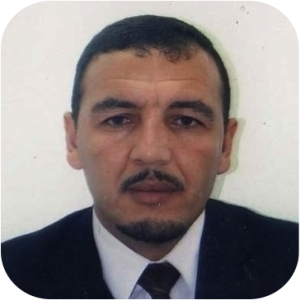
Thursday Apr 08, 2021
Description de quelques manuscrits mystico-religieux de Kabylie.
Thursday Apr 08, 2021
Thursday Apr 08, 2021
Episode 117: Description de quelques manuscrits mystico-religieux de Kabylie.
Constituant une ressource appréciable pour les sciences humaines et sociales, les manuscrits berbères écrits en caractères arabes sont répartis un peu partout dans les pays du Maghreb. Un bon nombre de ces manuscrits se trouve dans des bibliothèques publiques mais beaucoup d’autres appartiennent à des particuliers.
La journée d’étude organisée par le Centre d'Études Maghrébines en Algérie (CEMA) intitulée: Reflexions autour des manuscrits maghrébins, s’adresse aux chercheurs, enseignants-chercheurs et doctorants qui s’intéressent aux manuscrits. Les approches mobilisées dans les différentes communications programmées dans le cadre de cette journée sont riches et variées par les objets qu’elles traitent. Elles se penchent chacune à leur manière sur l’identification et la conservation des fonds documentaires, la paléographie, la codicologie, l’étude du contenu qui font l’objet de plusieurs branches de savoir telles les humanités numériques qui peuvent offrir des perspectives insoupçonnées.
Dans ce podcast Dr. Sadek Bala présente une communication portant sur la description de quelques copies de manuscrits de type mystico-religieux en circulation en Kabylie dont des textes de Hadj Said Ibehriyen, de Cheikh Mohand Ou Lhoussine et de Lhadj Mhand Ath Lhoucine.
La translittération de ces documents du vingtième siècle de langue kabyle est partagée entre l’adoption des caractères de l’arabe et du latin. Sur le plan rythmique et formel, il n’y a que des sizains (amesdis pour sizain en kabyle). Les poèmes sont adaptés au souffle du corps ; ce qui crée une certaine harmonie entre le texte et sa progression mélodique quand le poème est invoqué ou chanté. La description est une phase préliminaire dans l’étude et l’exploration du manuscrit dans le sens, elle permet d’inventorier et de dresser des portraits d’auteurs et de textes. A cette même description se greffe d’autres disciplines à l’exemple de la codicologie et de l’ethnomusicologie. Ce triptyque est le noyau central d’une matrice de recherche interdisciplinaire en perspective sur le manuscrit.
À travers ce travail, Dr. Bala révèle la richesse du patrimoine manuscrit et la nécessité de sa prise en charge réelle et effective par les institutions de recherches de façon particulière.
Titulaire d’un doctorat en Études Méditerranéennes et Orientales auprès de l’université de Strasbourg en 2008, Dr. Sadek Bala est Maître de conférences à la Faculté des Lettres et des Langues à l’Université de Bejaïa. Il est auteur de plusieurs articles sur la traduction en berbère et sur la thématique bio-hagiographique.
Cet épisode s'inscrit dans le cadre du cycle de conférences « Langues et sociétés au Maghreb ». Il a été enregistré à l’occasion de la journée d’études « Réflexions autour des manuscrits maghrébins », qui a eu lieu le 12 février 2020 au Centre d'Études Maghrébines en Algérie (CEMA). Dr. Karim Ouaras, Maître de conférences à l’Université d’Oran 2 et Directeur adjoint du CEMA a modéré le débat.
Pour consulter les diaporamas associés à ce podcast veuillez visiter notre site web www.themaghribpodcast.com
Nous remercions notre ami Ignacio Villalón, étudiant en master à l'EHESS, pour sa prestation à la guitare pour l'introduction et la conclusion de ce podcast.
Réalisation et montage: Hayet Lansari, Bibliothécaire / Chargée de la diffusion des activités scientifiques (CEMA).
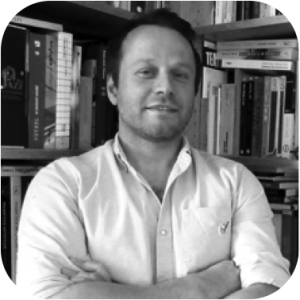
Thursday Apr 01, 2021
Thursday Apr 01, 2021
Episode 116: Ahmed Cherkaoui in Warsaw:
Polish-Moroccan Artistic Relations during the Cold War, 1955-1980
In this podcast, Dr. Przemysław Strożek reflects on Polish-Moroccan artistic relations between 1955 and 1980. He situates them within the broader historical phenomenon of a political and cultural rapprochement between countries of the Eastern Bloc and of the Global South during the Cold War. Focusing on Ahmed Cherkaoui’s sojourn in Warsaw from October 1960 to July 1961, he traces the artist’s connections with Polish artistic circles, particularly the Krzywe Koło Gallery in Warsaw. He then discusses other Moroccan artists (e.g. Farid Belkahia, Mustapha Hafid, Aziz Sayed, Najib Kheldouni, Azzedine Douieb and Abdelkader Lagtaa) who studied and interned at art schools in Warsaw and Kraków, as well as at the Film School in Łódź. He examines how these artists experienced Polish matter painting and abstract art of the 1960s, as well as academic art, experimental film, conceptual practices and the graphic art of the late 1970s.
Pzemysław Strożek is Assistant Professor at the Art Institute of the Polish Academy of Sciences in Warsaw, Poland, associate researcher at the Archiv de Avantgarden in Dresden, Germany, curator of exhibitions, and author of multiple publications. Dr. Strożek is a recipient of fellowships awarded by the Foundation for Polish Science, as well as the Fulbright Foundation. His research interests include histories of the avant-garde, studies on workers' sport, global modernism, and contemporary art. In 2020, he co-curated (together with Sara Lagnaoui) the exhibition titled Ahmed Cherkaoui in Warsaw: Polish-Moroccan Artistic Relations during the Cold War, 1955-1980 at the Zacheta National Art Gallery in Warsaw, Poland (March 10 to August 2, 2020).
This interview was led by Dr. Katarzyna Faleçka, CAORC Project Coordinator and Postdoctoral Humanities Fellow at the Centre d'Études Maghrébines à Tunis (CEMAT) and was recorded on February 7, 2020, as part of the Modern Art History in the Maghrib series. This is part of a larger Council of American Overseas Research Centers' program, financed by the Andrew Mellon Foundation, that seeks to collaborate with local institutions for a greater awareness of art historical research in North Africa.
to see related slides visite our website www.themaghribpodcast.org
Posted by: Hayet Lansari, Librarian, Outreach Coordinator, Content Curator (CEMA).

Thursday Mar 25, 2021
Les significations profanes de la pandémie Covid-19 à Oran
Thursday Mar 25, 2021
Thursday Mar 25, 2021
Episode 115: Les significations profanes de la pandémie Covid-19 à Oran
Dans ce podcast, Pr. Mohamed Mebtoul présente les résultats de son enquête menée à Oran, avec la participation de l’Association Santé Sidi El Houari et L’Observatoire Régional de la Santé d’Oran sur les significations profanes de la pandémie Covid-19. D'après lui, les mots, les métaphores et les propos des personnes sont essentiels pour comprendre les sens attribués à la pandémie Covid-19 à Oran. Les sens du mal sont importants à mettre en exergue. Ils traduisent les rapports des individus à la société et au politique. Seule une recherche socio-anthropologique centrée sur l’écoute attentive de la personne, pouvait nous permettre de prendre distance avec les certitudes, les jugements moraux et les étiquetages rapides sur la façon de se comporter vis-à-vis de la pandémie (« inconscience », « indiscipline », etc.). La rigueur scientifique est déployée à partir d’une enquête qualitative plus soucieuse de la qualité des mots que de la représentativité. Elle permet de relever les profondes secousses relationnelles occasionnées durant la pandémie, les inégales valeurs de vie face au confinement identifié à une « prison », une gestion sécuritaire, administrée et patriarcale de la pandémie.
Mohamed Mebtoul est en retraite. Il a été professeur de sociologie à l’Université d’Oran 2, directeur de l’Unité de Recherche en Sciences Sociales et Santé, fondateur de l’anthropologie de la santé en Algérie en 1991 et co-fondateur du GRAS (groupe de recherché en anthropologie de la santé). Ses recherches socio-anthropologiques ont porté sur les questions sociosanitaires centrées sur les logiques sociales déployées par les malades chroniques, les familles, les professionnels de santé et les pouvoirs publics. Sa trajectoire scientifique sur le “sens du mal” a été remobilisée pour décrypter les pratiques de la population vis-à-vis de la crise sociosanitaire
D’autres travaux ont concerné la sexualité des jeunes, la santé dite “reproductive” des femmes, les tensions autour de l’alimentation de l’enfant, sous le prisme des rapports sociaux de sexe. Ces recherches micro-sociologiques lui ont permis de questionner la notion de citoyenneté en Algérie, dans une perspective anthropologique, montrant son absence dans la société algérienne et surtout les raisons de sa non-constitution. Ce qui l’a conduit à appréhender le “Hirak” algérien du 22 février 2019, en investissant l’espace public pour tenter de comprendre de l’intérieur les objectifs, les logiques d’action et les interactions des manifestants. Sa trajectoire scientifique sur le “sens du mal” a été remobilisée pour décrypter les pratiques de la population vis-à-vis de la pandémie Covid-19. Ce dernier travail a été réalisé avec la participation de l’Association Santé Sidi El Houari et L’Observatoire Régional de la Santé d’Oran
Cet épisode s'inscrit dans le cadre du cycle des conférences “Santé et humanités au Maghreb” de l'American Institute for Maghrib Studies (AIMS), organisé par le Centre d'Études Maghrébines en Algérie (CEMA) et le Centre d'Études Maghrébines à Tunis (CEMAT) en étroite collaboration avec Tangier American Legation Institute for Moroccan Studies (TALIM). Ce podcast a été enregistré via Zoom le 10 décembre 2020 entre Oran et Tunis. Dr. Robert P. Parks, Directeur du CEMA, a modéré le débat.
Nous remercions Dr. Jonathan Glasser, anthropologue culturel au College of William & Mary, pour son istikhbar in sika à l'alto pour l'introduction et la conclusion de ce podcast.
Réalisation et montage: Hayet Lansari, Bibliothécaire / Chargée de la diffusion des activités scientifiques (CEMA).
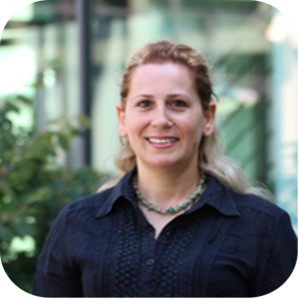
Thursday Mar 18, 2021
Thursday Mar 18, 2021
Episode 114: Entretien avec Dr. Asma Nouira : Les relations entre l'État et la religion en Tunisie
Dans ce podcast, Dr. Asma Nouira présente ses recherches sur les relations entre l'État et la religion en Tunisie. Ayant commencé avec une analyse du rôle du Mufti de la République en Tunisie, le spectre de cette recherche s'est élargi pour inclure les divers acteurs religieux en Tunisie, notamment après la révolution du 14 janvier 2011. Dr. Nouira analyse l'évolution de cette dynamique relationnelle entre État et religion à travers une exploration de l'histoire des institutions religieuses tunisiennes, de l'évolution des interprétations des textes de droit ainsi que de l'impact de l'ascension de l'Islam politique à l'aube de la révolution tunisienne. À travers cette recherche de longue durée, Dr. Nouira développe une compréhension particulière du concept d'Islam d'État en Tunisie, de ses usages complexes par les différents acteurs ainsi que des différents sens qu'il a pu avoir à travers l'histoire du pays et des acteurs politiques.
Asma Nouira est maître de conférences en sciences politiques, habilitée à diriger des recherches universitaires et ancienne Directrice du département des sciences politiques à la Faculté de droit et des sciences politiques de Tunis (FDPST), Université de Tunis El Manar. Elle a également travaillé sur les thématiques des partis politiques, du genre, de la décentralisation, et la démocratisation en Tunisie. Dr. Nouira est membre fondateur de l'Observatoire tunisien de la transitions démocratique (OTTD), crée en 2011.
Sous forme d'entretien avec Dr. Meriem Guetat, Directrice Adjointe du Centre d'Études Maghrébines à Tunis (CEMAT), ce podcast s'inscrit dans le cadre du cycle de conférences « Conversations en droit et sociétés » et a été enregistré le 20 décembre 2019 au CEMAT.
Posté par: Hayet Lansari, Bibliothécaire / Chargée de la diffusion des activités scientifiques (CEMA).

Thursday Mar 11, 2021
Thursday Mar 11, 2021
Episode 113: À la découverte de copies manuscrites d'une même œuvre : Le 'Kitâb al-siyar' de Wisyânî, un auteur Ibâdite Nord-Africain du 6ème AH. / 12ème
La journée d’étude organisée par le Centre d'Études Maghrébines en Algérie (CEMA) intitulée: Reflexions autour des manuscrits maghrébins, s’adresse aux chercheurs, enseignants-chercheurs et doctorants qui s’intéressent aux manuscrits. Les approches mobilisées dans les différentes communications programmées dans le cadre de cette journée sont riches et variées par les objets qu’elles traitent. Elles se penchent chacune à leur manière sur l’identification et la conservation des fonds documentaires, la paléographie, la codicologie, l’étude du contenu qui font l’objet de plusieurs branches de savoir telles les humanités numériques qui peuvent offrir des perspectives insoupçonnées.
Dans ce podcast Pr. Ouahmi Ould-Braham nous emmène à la découverte de copies manuscrites d’une même œuvre : le Kitâb al- siyar de El Wisyânî, un auteur ibâdite nord-africain du 6e H. / 12e siècle. Notre conférencier revient d’abord et avec force détails sur le climat socioculturel post-fatimide (11ème /12ème siècle), marqué par les travaux d’un certain nombre d’écrivains et de poètes dont El Wisyânî. Il retrace ensuite la trajectoire de ce manuscrit issu d’une chronique ibadite en vieux berbère (dans ses différentes variantes).
Réalisation et montage: Hayet Lansari, Bibliothécaire / Chargée de la diffusion des activités scientifiques (CEMA).

Thursday Mar 04, 2021
Terra Incognita: Mapping the Afterlives of French Nuclear Imperialism in the Sahara
Thursday Mar 04, 2021
Thursday Mar 04, 2021
This episode is part of “Health and Humanities in the Maghrib” a lecture series by the American Institute for Maghrib Studies (AIMS), organized by the Centre d'Études Maghrébines à Tunis (CEMAT) and the Centre d'Études Maghrébines en Algérie (CEMA), in close collaboration with the Tangier American Legation Institute for Moroccan Studies (TALIM). It was recorded on the 19th of November 2020 between Oran, New Haven (CT), Ithaca (NY) and Tunis. Dr. Samia Henni, Assistant Professor in the Department of Architecture at Cornell University, moderated the lecture and debate.
Posted by: Hayet Lansari, Librarian, Outreach Coordinator, Content Curator (CEMA).
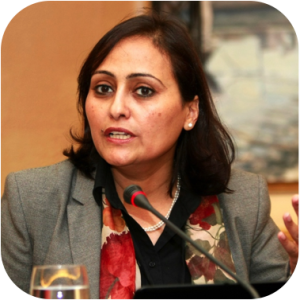
Thursday Feb 25, 2021
Non-State Actors and State-Building in Libya after 2011
Thursday Feb 25, 2021
Thursday Feb 25, 2021
Episode 111: Non-State Actors and State-Building in Libya after 2011
Posted by: Hayet Lansari, Librarian, Outreach Coordinator, Content Curator (CEMA).
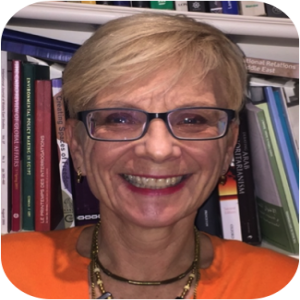
Thursday Feb 18, 2021
Centralization and Decentralization in the Middle East and North Africa
Thursday Feb 18, 2021
Thursday Feb 18, 2021
Posted by: Hayet Lansari, Librarian, Outreach Coordinator, Content Curator (CEMA).

Thursday Feb 11, 2021
Bread and Circuits: Illness, Food, and French Algeria
Thursday Feb 11, 2021
Thursday Feb 11, 2021
Episode 109: Bread and Circuits: Illness, Food, and French Algeria
In the midst of ongoing drought, famine, and epidemic disease in the 1860s, a few settlers in Algiers got sick with a mysterious illness. Investigations determined that the culprit was construction debris from the Haussmannization of Paris, shipped across imperial channels and then used as fuel in a few Algiers bakeries. Lead pain become poison in loaves as this material combusted in colonial bread ovens. The modernization of the imperial metropole, that is, turned into toxic debris in the colony. In this podcast, Dr. Brock Cutler takes a look at how this story about poisoned bread can expose the filaments that tied together an imperial space in the western Mediterranean, along the way illuminating the role bread played in performances of modern imperialism.
Dr. Brock Cutler is an Associate Professor in the Department of History at Radford University. He is the author of numerous articles and book chapters dealing with ecology and history in North Africa. His forthcoming book, "Crisis Ecologies: Imperialism, Death, and Debris in Algeria," centered around a massive ecological disaster in which 800,000 Algerians died between 1865 and 1872, explores how the new eco-social dynamics in the late nineteenth century cleaved societies from environments and people from society, creating the new insides and outsides of modernity and imperialism.
This episode is part of “Health and Humanities in the Maghrib” a lecture series by the American Institute for Maghrib Studies (AIMS), organized by the Centre d'Études Maghrébines à Tunis (CEMAT) and the Centre d'Études Maghrébines en Algérie (CEMA), in close collaboration with the Tangier American Legation Institute for Moroccan Studies (TALIM). It was recorded on the 15th of October 2020 between Oran, Radford (VA), St. Petersburg (FL) and Tunis. Dr. Adam Guerin, Associate Professor in the Department of History at Eckerd College, moderated the lecture and debate.
To see related slides visit our web site www.themaghribpodcast.com

Thursday Feb 04, 2021
Anti-Elitism in Tunisia: Condition of Political Success?
Thursday Feb 04, 2021
Thursday Feb 04, 2021
Episode 108: Anti-Elitism in Tunisia: Condition of Political Success?
Posted by: Hayet Lansari, Librarian, Outreach Coordinator, Content Curator (CEMA).
